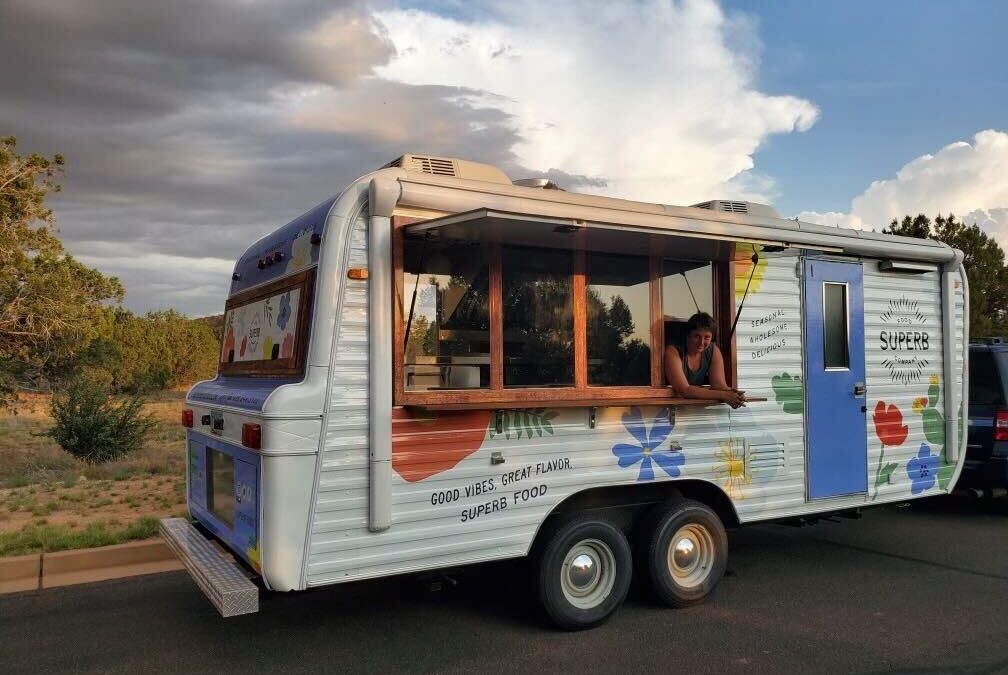The NoCo Community Kitchen is an Investment in the Resilience of the Local Food Community
Food, whether in the making or eating of it, has been a source of the community since humans began using fire. A uniquely food-centric form of community has just opened in downtown Prescott.
Having a commissary kitchen in Prescott has been the dream of many, especially Kathleen Yetman, Executive Director of Prescott Farmers Market (PFM.) She first saw the need for such a space when PFM conducted a feasibility study for a local food center in 2018.
Fast forward three years to PFM receiving grant funding from the Department of Agriculture, and now the dream has been realized through NoCo Community Kitchen. Named after its location, NoCo is bringing new life and new members of the local food community to North Cortez Street just two blocks from where PFM began 25 years ago.
For those unfamiliar with commissary kitchens, think of a co-working space for people whose business involves food preparation. To promote food safety, the health department requires businesses such as caterers, food trucks, and sauce makers to use a commissary kitchen. For small businesses, these kitchens are more than just a place to safely prepare food.
Rich Dearborn of Edible Earth Kombucha explained that a commissary kitchen “is critical; to create a business is a risk and shared kitchens allow people to take that risk without destroying their lives.”
Local food lovers Ariel Nadelberg and Jason Shepherd of Superb Food Co. chose to take that risk a year ago. Ariel said they made the decision to start a mobile food business because “it was the first opportunity where I didn’t have to just be the sweat equity in someone else’s operation.”
Her start, she admitted, was made more difficult by the lack of commissary kitchens in the area. Initially, she found space to rent at a hall in Chino Valley, but there were limitations on when she could prepare food or process deliveries, and the logistics of running a profitable business spread between Chino Valley, Prescott Valley, and Prescott was a challenge.
NoCo Community Kitchen offers small food businesses more than a safe, convenient place to create their dishes or clean their vegetables. Through its incubator program, food entrepreneurs have access to business skills training, personalized coaching, and a wide network of resources within the food business community.
It also supports more than traditional food makers. Emily Hughes, of Heidi Lane Farm and Café, said, “Lots of farmers have surplus produce either because it doesn’t always sell or sometimes crops produce more than you think they’re going to.”
While she and her husband Joe have a small café where they can utilize that surplus, most farmers don’t. According to Emily, “Value-added products like salsas, sauces, and pickled vegetables, are a great way to add another revenue stream … [but you need] the infrastructure and manpower in place.”
NoCo Community Kitchen provides that infrastructure and is a solution for farmers who want to minimize farm waste and/or diversify their revenue.
As a program of PFM, NoCo Community Kitchen shares its mission to support and expand local agriculture. It is Kathleen’s hope that “Through NoCo the local agricultural producers and small food businesses currently being supported by the Saturday market have the opportunity to scale up and realize their own dreams.”
And whether by reducing risks for new small food businesses and connecting them to locally grown ingredients or offering local farmers a chance to increase their revenue, the kitchen is an investment in the resilience of our local food community. And that, as Ariel put it, “is one of the most important things we can do. The more we can produce locally and with better quality, the better it is for everybody.”
Learn more at https://prescottfarmersmarket.org/noco-community-kitchen/.

